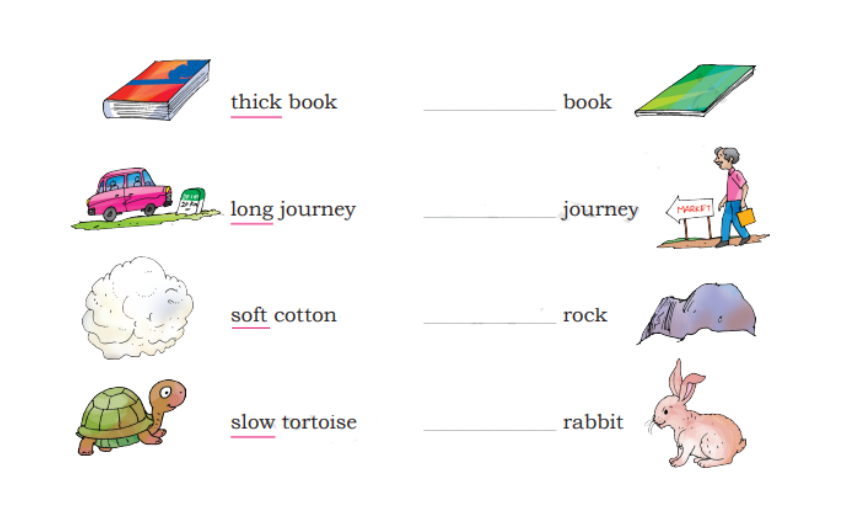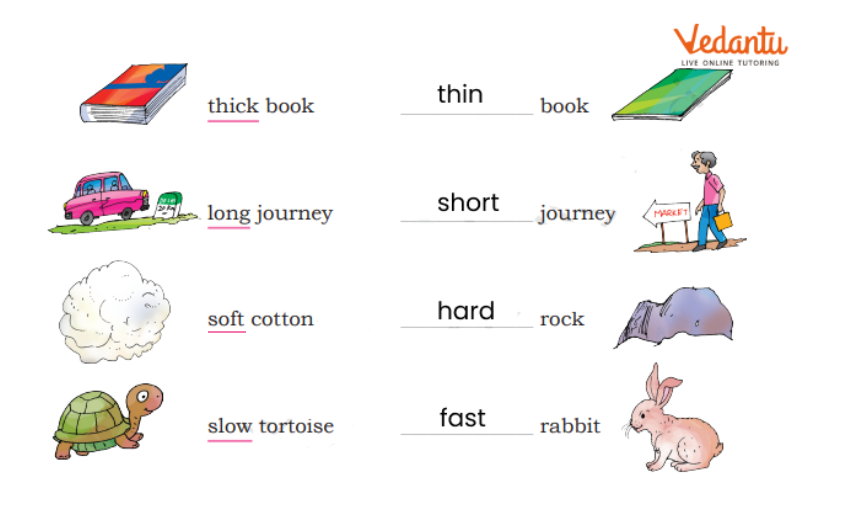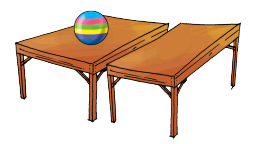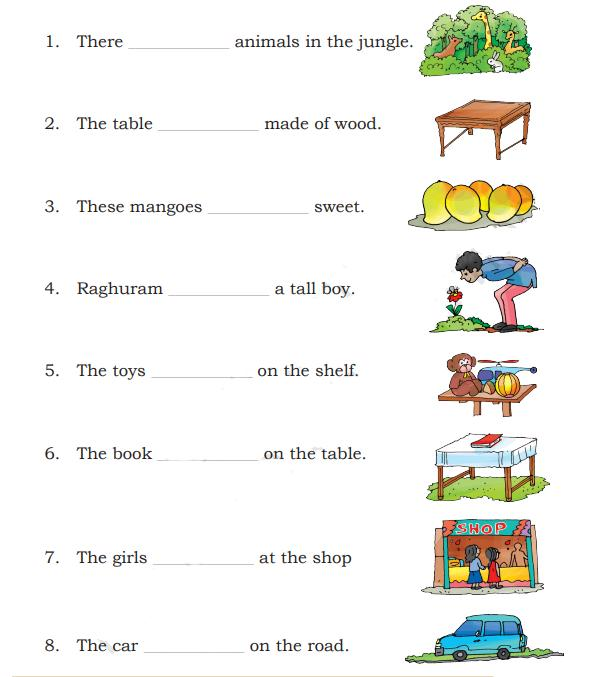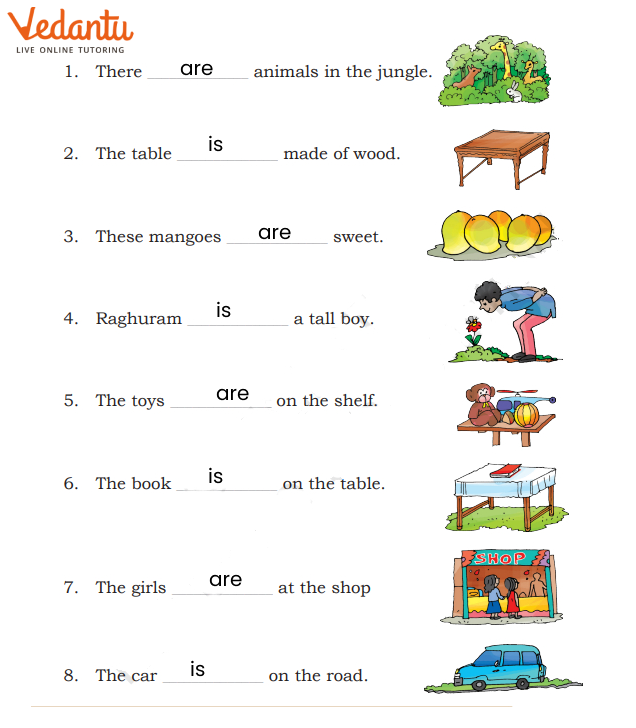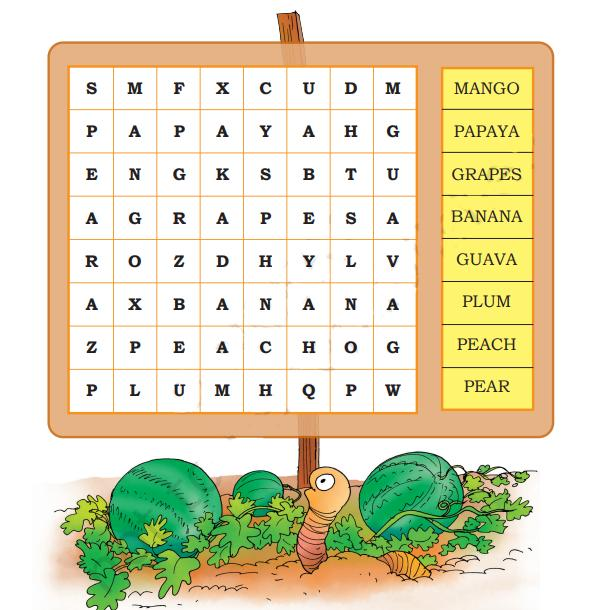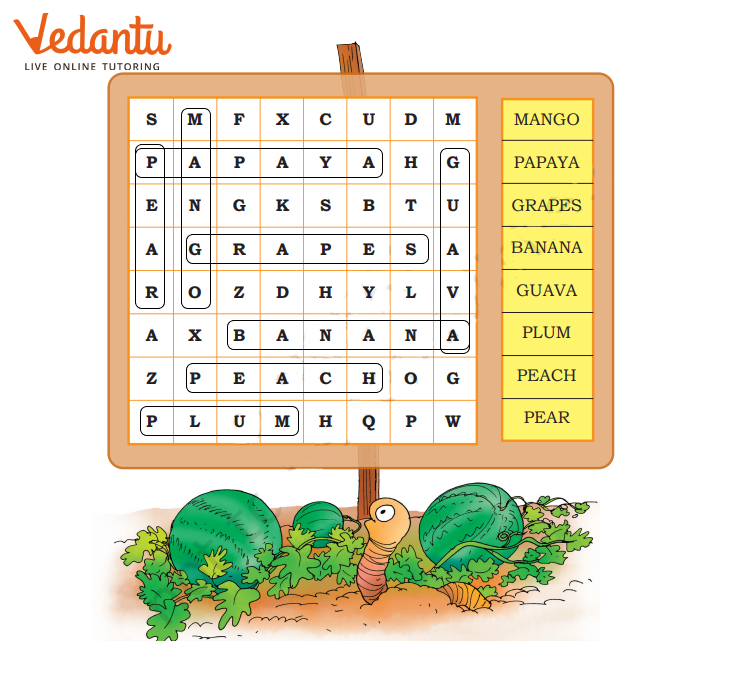English Santoor Class 3 Chapter 8 Questions and Answers - Free PDF Download
FAQs on NCERT Solutions For Class 3 English Santoor Chapter 8 Thank God (2025-26)
1. What are the stepwise NCERT solutions for Class 3 English Chapter 8 'Thank God'?
The stepwise NCERT solutions for Class 3 English Chapter 8 ‘Thank God’ follow the official textbook answer format prescribed by CBSE for 2025–26. Each question is answered pointwise as per the latest NCERT pattern, with explanations given for all intext and end-exercise questions. Students are guided through each answer so they understand the appropriate way to write solutions in exams, aligned to the NCERT syllabus.
2. Are these NCERT solutions for Class 3 English Chapter 8 'Thank God' correct as per the CBSE 2025–26 syllabus?
Yes, these NCERT solutions are fully updated and correct as per the CBSE 2025–26 syllabus for Class 3 English Chapter 8. All answers are verified for accuracy and follow the NCERT textbook structure and official CBSE marking scheme to help students score full marks in examinations.
3. How can I download Class 3 English Chapter 8 Question Answer PDF for NCERT?
You can download the Class 3 English Chapter 8 Question Answer PDF for NCERT by visiting trusted educational websites that provide free NCERT solutions. Ensure the PDF follows the latest CBSE-approved solution pattern and answers all textbook questions in the official format.
4. Where can I find Class 3 English Chapter 8 worksheet with answers based on NCERT?
You can find worksheets with solutions for Class 3 English Chapter 8 on reputed learning platforms that provide NCERT-aligned resources. These worksheets are designed as per the CBSE 2025–26 curriculum, with stepwise answers to help you practise each type of textbook question.
5. What is the correct answer for the main question in Class 3 English Chapter 8 'Thank God' according to the NCERT answer key?
The correct answer for the main question in Class 3 English Chapter 8 'Thank God' is structured as per the NCERT answer key, ensuring it aligns with the textbook narrative and moral. Each answer should express the gratitude theme, mentioning key details from the lesson and concluded in the CBSE recommended format.
6. Is there a difference between Class 3 English Chapter 8 and Maths Chapter 8 NCERT solutions?
Yes, NCERT solutions for Class 3 English Chapter 8 focus on language, comprehension, and textbook story questions, following CBSE English answering guidelines. In contrast, Maths Chapter 8 solutions provide stepwise explanations for numerical and problem-solving tasks, as per the Maths syllabus.
7. Where do I find the official NCERT answer key for Class 3 English Chapter 8?
The official NCERT answer key for Class 3 English Chapter 8 ‘Thank God’ can be found in the NCERT Teacher's Manual or on the CBSE Board’s approved educational portals. Always ensure that the answer key you refer to follows the updated CBSE guidelines for 2025–26.
8. How do I write CBSE approved answers for Class 3 English Chapter 8 in exams?
To write CBSE approved answers for Class 3 English Chapter 8, use complete sentences, include examples or lines from the textbook, and write in the order instructed by the question. Begin with the main point and support it with details, concluding as shown in NCERT solutions for full marks.
9. Are the NCERT solutions for Class 3 English Chapter 8 available in PDF for free?
Yes, most educational websites provide the NCERT solutions for Class 3 English Chapter 8 'Thank God' in PDF format for free. Ensure that you download from a trusted source and verify that the answers match the CBSE 2025–26 NCERT textbook format.
10. Can these NCERT solutions for Class 3 English Chapter 8 help in CBSE exams?
Absolutely, these NCERT solutions for Class 3 English Chapter 8 are designed as per the official CBSE pattern and align with marking schemes, helping students to prepare efficiently and write accurate answers in their exams for maximum marks.

























